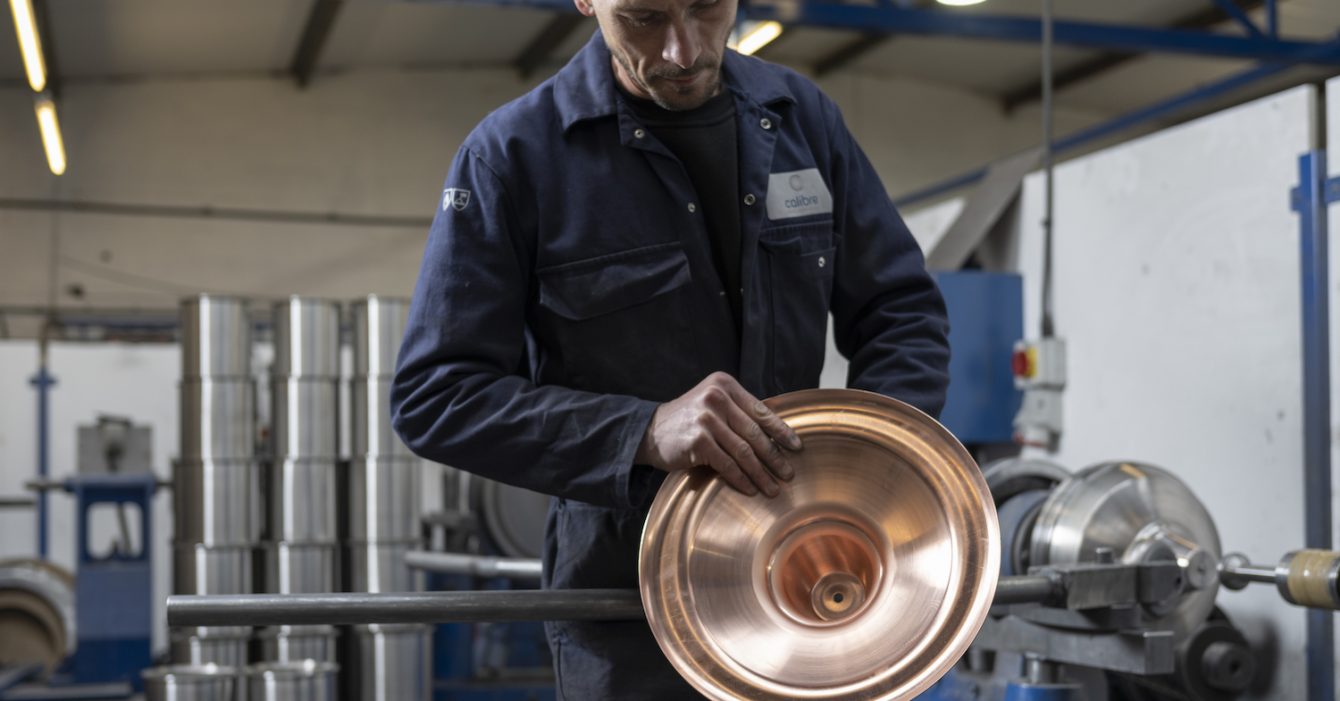
Metal Spinning
The precise skill for functional perfection.
Metal spinning is a highly-skilled engineering process used to create strong and symmetrical metal products for any industry that requires precision and consistent quality.
Discs or tubes of metal are spun on a high-speed lathe which the Metal Spinner uses various spinning tools to form a perfect, seamless shape over a mandrel to the customers spec. Material thickness can be maintained, and the strength and rigidity of the metal is retained..
Metal spinning is the best way to form round parts for any commercial application and the finished products not only have a distinctive beauty that is highly valued by designers, but also a unmatched functionality prized by engineers.
We are able to supply metal spun parts as small as 10mm in diameter to as big as 1500mm in diameter (dependant on depth) working with both ferrous and non ferrous materials and specialist alloys including duplex, Inconel, monel and kovar to name a few plus precious metals including silver.
Our product size capacity ranges from 0.2mm to 3mm in thickness and up to 1250mm/4ft in diameter.






